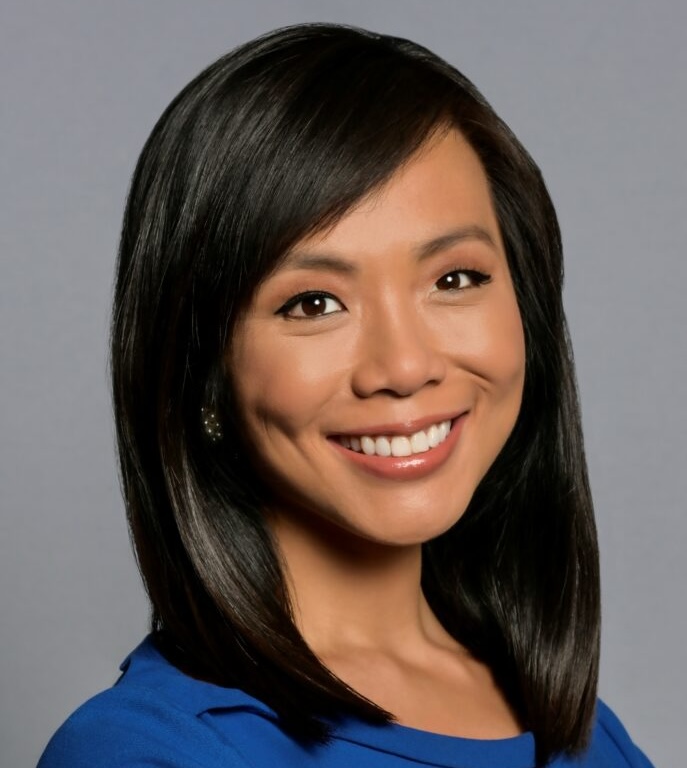Weijia Jiang Takes Over White House Correspondents Association
By Romen Basu Borsellino | 18 Jul, 2025
The Senior CBS News reporter is the first woman of color to lead the organization representing over 900 journalists.
As of Wednesday senior CBS News reporter Weijia Jiang is officially the new President of the White House Correspondent’s Association (WHCA), the 900-member organization that represents 300 news companies. In their own words, the WHCA works “to ensure a strong free press and robust coverage of presidency.”
Jiang is the first woman of color to lead the WHCA. Prior to the start of her one-year term as President, she served as Vice President which automatically put her in line for the WHCA presidency.
Jiang is taking over at a particularly tumultuous time for the WHCA. In April, their flagship event, the annual White House Correspondent’s Dinner, managed to alienate nearly everybody. The dinner, playfully known as nerd prom, typically ends with a comedic monologue by a celebrity guest. Past guests during various presidencies have included Stephen Colbert, Wanda Sykes, Colin Jost, and Trevor Noah. This year, the WHCA tapped comedian Amber Ruffin, a Black woman. Ruffin, like most late night comics, has a history of lampooning Trump.
When the Trump administration predictably, complained about Ruffin, the WHCA demanded that Ruffin agree to make fun of both political parties equally. When she refused to do so, citing, among other reasons, the fact that the party in power deserves to be held under greater scrutiny, her invitation was revoked. This infuriated liberals and fans of Ruffin, who saw it as kowtoking to the President. It did not appease the White House either, who labelled the decision to drop Ruffin “a cop out.” Many critics of the decision to drop Ruffin questioned whether the WHCA would have treated a host that way were she not a black woman. Maybe having a woman of color leading the organization last year would have resulted in a different outcome.
In addition to helming the WHCA, Jiang’s day job may alone present her with obstacles. Her own employer CBS is facing rampant criticism over a purported lack of journalistic independence when it comes to covering Trump. On Monday night CBS’s Late Show host Stephen Colbert devoted his opening monologue to criticizing his employer’s decision to settle a $16 million lawsuit by Trump over a segment they ran on Presidential candidate Kamala Harris during the 2024 election. Colbert referred to the settlement as “a big fat bribe.” Just last night CBS announced that it will be cancelling The late Show at the completion of this season. Trump has long called for CBS to fire Colbert.
Jiang certainly has her work cut out for her. But if past is prologue, she should be up to the task.
No seasoned journalist would wish to be in the spotlight of any news story but Jiang’s own story merits attention, though she might disagree with that assessment.
“It’s not my story,” Jiang told CBS Mornings in 2024 while explaining why she agreed to let them spotlight her. “It’s the immigrant story for anyone who comes to this country with nothing but a dream. And now they can see me here at the White House.”
Weijia Jiang was born in China before moving to West Virginia at age two so her father could begin grad school. In middle school she was just one of 20 applicants from a pool of 13,000 to win a trip to Los Angeles and spend a week shadowing CBS journalist Lisa Ling. At just age 13 Jiang stated her desire to be the next Connie Chung whom she would later describe as one of “less than a handful of prominent Asian American broadcasters” at the time.
Jiang’s identity as an Asian American reporter was put front and center in 2020 during a tense exchange with President Trump.
During a Rose Garden press conference towards the beginning of the COVID-19 pandemic, Jiang asked the President why he viewed COVID testing as a global competition.
“Maybe that’s a question you should ask China,” replied Trump. “Don’t ask me, ask China.”
“Sir, why are you saying that to me, specifically? That I should ask China.” Jiang fired back. Trump referred to her initial question as “nasty” before ending the press conference and leaving the podium.
Jiang’s upbringing in the 5,500-person town of Buckhannon, WV likely contributed to her ability to go toe to toe with the President of the United States. As she has stated, being one of the only minorities at her school subjected her to racism — like her peers asking if she could see, given how small her eyes were —which gave her a thick skin.
She has also stated that her small-town upbringing has contributed to her success in that it allowed her to understand viewers who live outside of the elitist coastal bubble than many associate with journalists from major news companies.

Articles
- Volvo's Fully Electric Cars Shine Against Overall Sales Slump
- Mitsubishi Heavy to Enjoy Record Year on Japan's Nuclear Reactor Restarts
- Beijing Plans to Scale Up AI, Humanoid Robotics and Space-Faring Capabilities
- US to Raise Tariffs to 15% This Weeks
- Apple Debuts $599 MacBook Neo to Challenge Chromebook, Windows PCs
Asian American Success Stories
- The 130 Most Inspiring Asian Americans of All Time
- 12 Most Brilliant Asian Americans
- Greatest Asian American War Heroes
- Asian American Digital Pioneers
- New Asian American Imagemakers
- Asian American Innovators
- The 20 Most Inspiring Asian Sports Stars
- 5 Most Daring Asian Americans
- Surprising Superstars
- TV’s Hottest Asians
- 100 Greatest Asian American Entrepreneurs
- Asian American Wonder Women
- Greatest Asian American Rags-to-Riches Stories
- Notable Asian American Professionals

